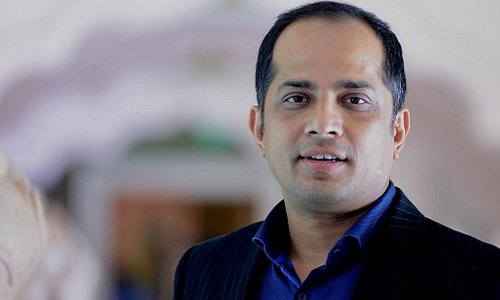This meant developing the right infrastructure, providing clear and supportive policies and regulations, and developing fintech talent with the right skills to support growth.
«This move to let grow a smart financial centre is not done in isolation»
We looked across the different asset classes to identify opportunities. We also started looking at cross-sector implications as industry trends pointed towards an increasing blurring of lines across sectors and an interest in unbundling and re-bundling of financial services.
This move to grow Singapore as a fintech hub and a «smart financial center» is not done in isolation, but as part of a broader agenda to position Singapore as a «smart nation».
What role are banks left with as the world moves more and more towards fintech?
We will see more unbundling of financial services. There is a school of thought that this may be taken to the extreme, with banks offering only the most basic of banking services, such as deposit-taking, with other services being provided by fintechs that «plugs» in to the banks.
I don’t subscribe to such a model, and I think it will fall somewhere in the middle – where value-added services will be increasingly provided by fintechs who are able to provide a better service than the banks.
Will fintechs destroy the business models of the banks?
We see that fintech companies and financial institutions in Singapore are more geared towards a collaborative, and not a competitive model. Many of these firms provide solutions that help financial institutions run more efficiently and reduce costs.
«Fintech companies are catering towards the unbanked segment»
The strongest case of competition currently is in the peer-to-peer lending space, where fintech are going into the business of lending traditionally handled by the financial institutions.
Even in Singapore, we see that there is some differentiation in product offering and segmentation, and the fintech companies are catering towards the previously unbanked segment, so there is a strong element of «expanding the pie» rather than just direct competition.
Sopnendu Mohanty is the Monetary Authority of Singapore's fintech chief. He is responsible for development strategies and regulatory policies around technology innovation to «better manage risks, enhance efficiency and strengthen competitiveness in the financial sector». Prior to joining MAS, Mohanty was with Citibank as the head of consumer lab network and programs. He studied at the Birla Institute of Technology and Science in Pilani, India.
This is the first installment of finews.asia's interview with Mohanty. In coming days, finews.asia will publish a second instalment with his views of cryptocurrencies and their underlying technology, blockchain, as well as Singapore's role in the burgeoning token industry.
- << Back
- Page 3 of 3




















